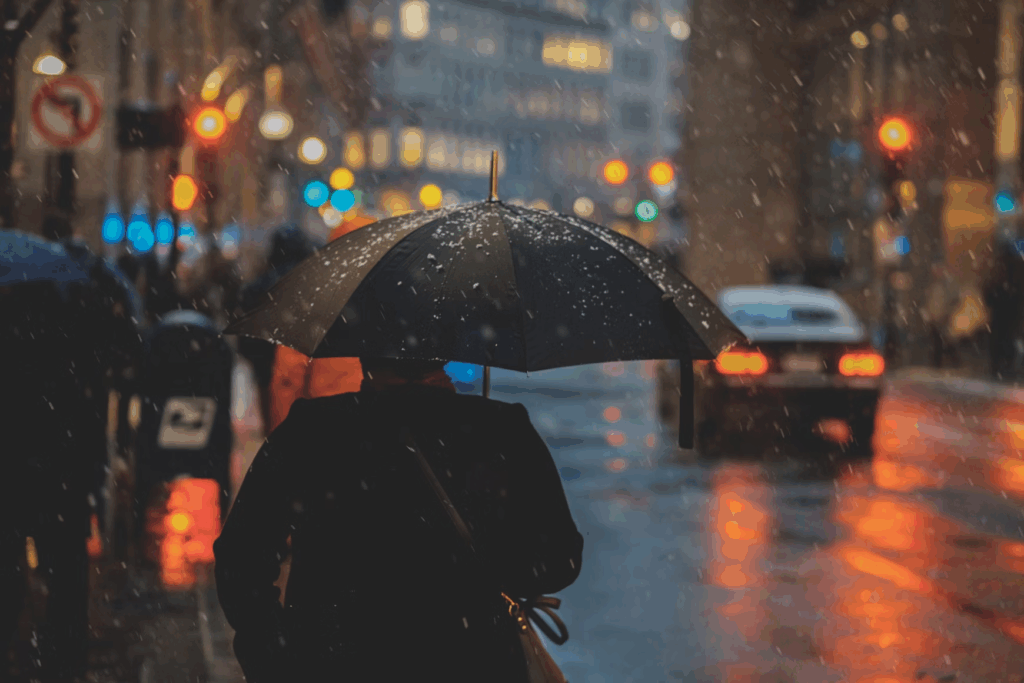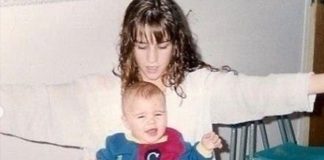Once, he had been a barefoot boy from southern Chile, running through muddy streets with dreams bigger than his village. Now, he was an international magnate with offices in New York, London, and Hong Kong. His name appeared in business magazines, his photo on covers, his signature on billion-dollar contracts.
But behind the empire was silence. His success had become his armor, and loneliness its inevitable cost. He hadn’t seen his parents, Manuel and Carmen, in nearly six years. Their phone calls were brief, polite, and always ended with his mother’s soft assurance—“We’re fine, son,” though he had always sensed they weren’t.
To bury the guilt, he did what he was best at: he paid for peace. He sent half a million dollars to his cousin Javier with one message—“Build them the best house in the village. Make sure they have everything.”
That morning, when a major Asian deal collapsed, Sebastián suddenly had something foreign to him: free time. Forty-eight unplanned hours. He stared at the mountains from his penthouse window and felt something he hadn’t felt in years—a strange tug in his chest. Maybe nostalgia. Maybe longing.
Without telling anyone, he made a decision. No chauffeur, no assistant, no press. He would go home. He wanted to see the house he’d built for his parents.
He packed light, slid behind the wheel of his matte-black Mercedes G-Wagon, and entered the address of his childhood home. The GPS said eight hours south. Eight hours toward a past he thought he’d long outgrown.

The Storm
The sleek highways of Santiago gave way to narrower roads lined with wet eucalyptus trees. Then came the gravel—uneven, rough, winding between valleys that smelled of rain and earth.
Dark clouds gathered above. Soon, the first drops fell—slow, cold, and relentless. A southern Chilean storm. The kind that could soak your soul.
Sebastián tightened his grip on the wheel. The rain drummed hard against the windshield, and with every mile, memories returned uninvited: the sound of rain leaking through tin roofs, the crackle of wet firewood, the way his mother’s hands would shiver as she wrung out soaked laundry. He had once promised himself he would never feel that cold again.
He smiled faintly. Not anymore, he thought. They’re probably watching the rain through double-glazed windows now, sipping tea in the warmth of their new home.
He could already imagine it—the modern house standing proudly in the heart of the village, a symbol of his success.
But when he finally turned onto the street where he had grown up, his heart sank.
The road was thick with mud. The colorful homes of his memory were gray and peeling. Children ran barefoot under the rain, laughing as water splashed from the potholes.
And then he saw it.
There was no new house.
Only the same fragile wooden structure leaning tiredly against the weight of the years.

The Rain and the Truth
At first, he thought his eyes were deceiving him. But then he saw movement—two figures outside, drenched to the bone.
His parents.
Manuel and Carmen stood under the downpour, not sheltered, not waiting for anyone. Around them were their belongings—soaked furniture, sagging boxes, and a television wrapped in plastic that did nothing to protect it.
They were being evicted.
Sebastián slammed on the brakes and jumped out, not even realizing he’d left the car door open. Rain drenched him instantly, cold needles piercing through his shirt.
“Papá! Mamá!” he shouted.
His voice echoed through the storm.
They turned slowly. But their faces didn’t light up. There was no joy. Only shame.
His mother covered her mouth with trembling hands. His father straightened, trying to preserve what little pride he had left.
“Sebastián,” his father said quietly, “you shouldn’t be here, son. It’s not a good time.”
“Not a good time?” Sebastián’s voice broke. “What’s happening? Who are these people?” He turned to the two men by the door. “What are you doing to my parents’ house?”
One of them, a man in a soaked jacket, lifted a paper. “We’re from the bank. The property’s been repossessed. Unpaid mortgage. Eviction order.”
Sebastián blinked, rain running down his face. “Mortgage? This house was paid off decades ago!” He turned to his father, desperate. “What about the money I sent? The new house? The half a million? Where’s Javier?”
At that name, Carmen began to sob harder. Manuel looked down at the mud.
“There is no new house,” he said quietly. “And no money. Javier… told us the papers were for permits, said the construction would start soon. Then the letters from the bank came. He said it was a mistake. We didn’t want to bother you, son. You were busy. We thought he was helping.”
Sebastián froze. His cousin. The man he had trusted.
He felt the storm inside him match the one falling from the sky.

The Betrayal
A car approached from behind—an old, dented pickup. Out stepped Javier, holding an umbrella and wearing the kind of smile that dies quickly when truth arrives.
When he saw Sebastián, he stopped mid-step. His face drained of color.
Sebastián walked toward him, slow and deliberate. His voice was calm, but his eyes burned.
“You’re going to explain everything,” he said quietly.
Javier opened his mouth, but no words came.
“I gave you half a million dollars,” Sebastián said, his voice trembling now. “Half a million—for them. For my parents. You took it, didn’t you?”
Javier stuttered something about investments, delays, paperwork. But the excuses were too weak to stand against the fury before him.
Sebastián’s hand shot out, gripping Javier’s collar. “You stole their home. You left them in the rain.”
He released him, disgusted. “You’re finished, Javier. I’ll make sure of it.”
He turned to the bank agents. “How much?”
The man blinked, confused. “The debt?”
“Yes. How much.”
The man hesitated, then showed him the figure on the paper.
Sebastián let out a bitter laugh. For him, it was pocket change. For his parents, it was everything.
He pulled out his phone. “Transfer the full amount,” he ordered his assistant. “Right now. And tell the bank manager I’m buying this debt. This house is no longer theirs—it’s mine.”
Within minutes, confirmation buzzed through his phone. He handed the paper back. “You can go,” he said to the men. “You too, Javier. The police will find you.”
The workers left quickly, not daring to meet his eyes. Javier tried to slip away, but Sebastián called the police. He wasn’t going anywhere.
The rain softened. The storm had spent itself, but the damage was done.
The Son Who Returned
For a long moment, no one spoke. The street was silent except for the sound of water dripping from the roof.
Sebastián turned to his parents. His mother’s eyes were red, her hands shaking. His father’s shoulders had sagged under the weight of years.
“I thought I was helping,” Sebastián whispered. “I thought money could fix everything.”
He stepped forward, pulling them into his arms. “Forgive me for forgetting where I came from.”
Carmen began to cry quietly against his chest. Manuel’s hand, rough and warm, rested on his son’s back. “You came home,” he said softly. “That’s what matters.”
Sebastián pulled back, looking around the crumbling street—the sagging roofs, the broken fences, the weary faces watching from behind curtains.
“This isn’t just about us,” he said. “Tomorrow, we start rebuilding. All of it.”
His father frowned. “What do you mean?”
“I’m buying the whole street,” Sebastián said. “Every house, every lot. I’m building new homes—for every retired couple, every worker who never had a chance. There’ll be a clinic, a school, and a hall for gatherings. And it’ll be named after you—The Manuel and Carmen Foundation.”
Carmen gasped. “Sebastián, you can’t—”
“I can,” he interrupted gently. “And I will. I’m staying here to see it done. No more distance.”

The New Beginning
Months later, the village no longer looked forgotten.
Where puddles and mud had once ruled, now stood paved walkways lined with flowers. Where broken homes had sagged, bright new ones rose—painted in the colors of the sea and sky.
Sebastián traded his suit for jeans and work boots. He oversaw construction himself, laughing with workers, drinking coffee from tin mugs his mother handed out each morning.
His parents became the heart of the project—welcoming builders, serving meals, telling stories. The people who had once pitied them now admired them.
And Sebastián, for the first time in his life, felt rich in a way that had nothing to do with numbers.
Javier was sentenced to prison. The stolen money was recovered, but Sebastián barely cared. The real recovery was happening here, in the laughter echoing down the street that used to be forgotten.
One crisp morning, as sunlight broke over the Andes, Sebastián stood outside the newly built community center. His parents stood beside him, hand in hand. The sign above the door read:
“The Manuel and Carmen Foundation – For Love That Endures.”
His mother turned to him, smiling through tears. “You built something beautiful, son.”
He looked out across the homes, the gardens, the people smiling and waving. “No,” he said quietly. “We did.”
Please let us know your thoughts and SHARE this story with your Friends and Family!

